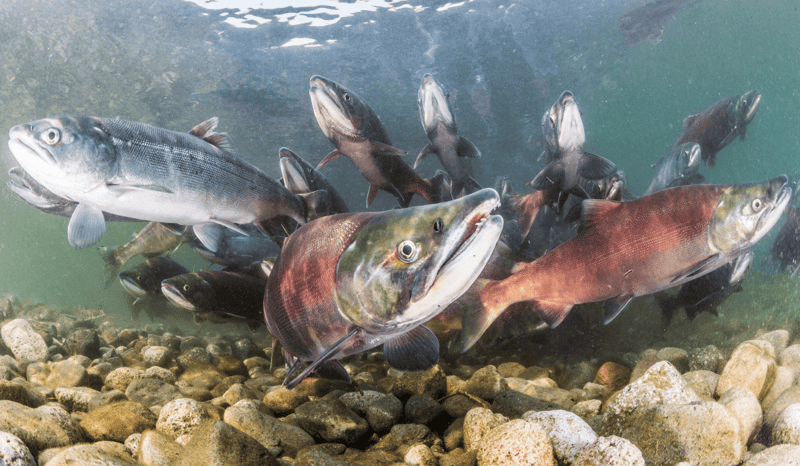
New Study Finds Fish Endure More Than 20 Minutes of Pain When Killed for Food
Blog
Fish suffer long, painful deaths in the seafood industry, according to a new study. Explore the science behind fish sentience and how plant-based diets can protect them.
Fish may not scream, but science is making it loud and clear: they suffer. A study published in Scientific Reports reveals just how intense—and long-lasting—that suffering can be. In the case of rainbow trout, one of the most commonly farmed fish in the world, slaughter can bring 2 to 22 minutes of excruciating pain.
Let that sink in: more than 20 minutes of agony before death.
While fish have long been excluded from most animal welfare protections, this research confirms what animal protection advocates have been saying for years—fish are sentient beings capable of feeling pain, fear, and stress. And with up to 2.2 trillion wild fish and 171 billion farmed fish killed every year for human consumption, the scale of this cruelty is beyond comprehension.
Slaughter by Suffocation
The most common method of killing fish—air asphyxiation—is as brutal as it sounds. After being hauled from the water, fish are left to suffocate in open air. During this time, they remain conscious, gasping as their gills dry out, experiencing prolonged distress. According to the study, trout endure around 10 minutes of moderate to intense pain on average, with larger fish or colder water conditions extending that torture.
Other practices like crowding during transport and chilling fish in ice slurry (a supposedly “humane” method) may actually make things worse by increasing stress and delaying unconsciousness.
Farmed Fish: No Safe Haven
If you think fish farming is a more ethical solution, think again. Farmed fish also suffer in crowded, filthy enclosures, where disease spreads easily and fish are often forced to swim in their own waste. On top of that, many farmed fish are fed other wild-caught fish, depleting ocean ecosystems in the name of profit.
Just like land-based factory farms, aquatic factory farms prioritize speed and cost over the animals. This industrial approach to seafood production is not only inhumane, it's also a ticking environmental time bomb.
The Environmental Impact
Our global appetite for fish is devastating the planet. Overfishing has pushed entire species to the brink of extinction, disrupted marine ecosystems, and harmed countless non-target animals through bycatch—including turtles, dolphins, and sharks.
Fish farming isn’t much better. These aquaculture operations pollute surrounding waterways with waste, antibiotics, and parasites like sea lice. Escaped farmed fish can even interbreed with or outcompete wild populations, threatening biodiversity.
Whether wild-caught or farmed, the environmental price of seafood is unsustainable.
The Better Way Forward: Plant-Based Seafood
Thankfully, we don’t need to harm fish—or our oceans—to enjoy seafood flavors. Plant-based, fermentation-based products, and are already making waves, offering options that are better for fish, the planet, and human health.
Brands are innovating with ingredients like seaweed, mushrooms, legumes, and even fermentation technology to recreate the taste and texture of fish without the cruelty or ecological damage. And they’re succeeding: today’s vegan seafood includes everything from fish-free filets and tuna to calamari and caviar.
Fish Deserve Protection, Too
Despite overwhelming evidence of their sentience, fish are often the forgotten victims in conversations about animal suffering. They’re excluded from the USDA’s Humane Methods of Slaughter Act, and most global animal protection laws don’t include them at all.
It’s time to change that.
If we truly care about preventing suffering, fish cannot be left out of the conversation. They feel pain. They experience fear. And they deserve better.
Take Action
At World Animal Protection, we’re fighting to protect animals across all species—from the land to the sea. You can help end the cruelty faced by fish by choosing to eat more plant-based foods and signing petitions to protect animals.
Want to get started? Join World Animal Protection’s FREE online plant-based community, Plant-Powered Changemakers, today!
link to Annette's blog about visiting and tasting AQUA Cultured Foods' tuna